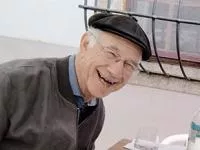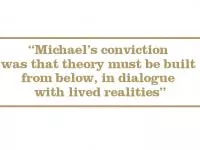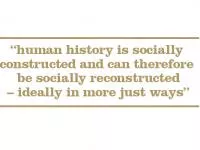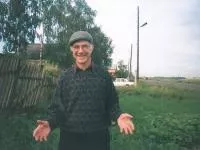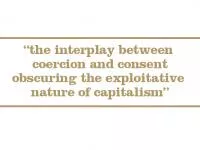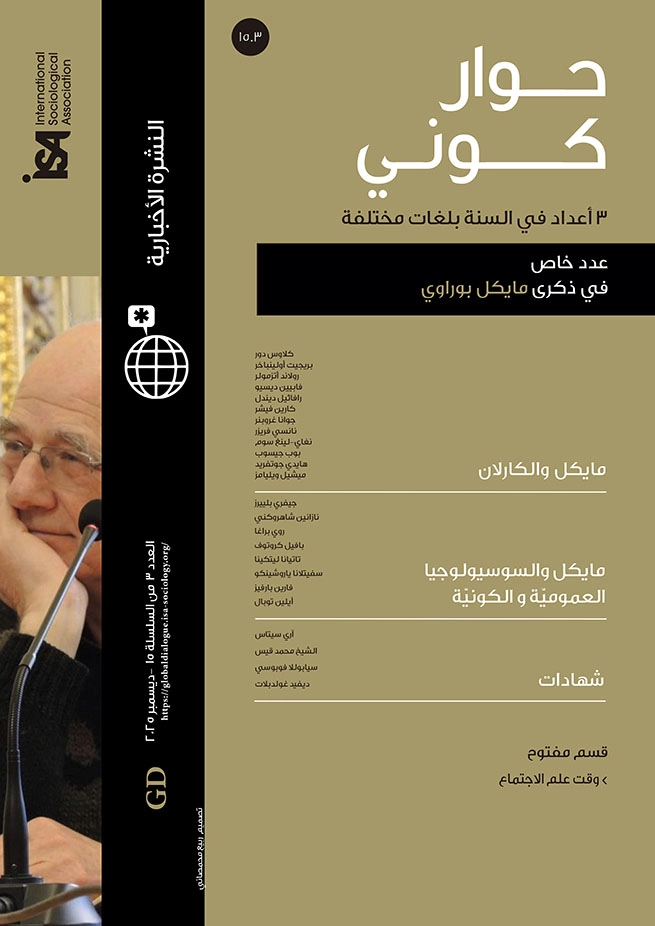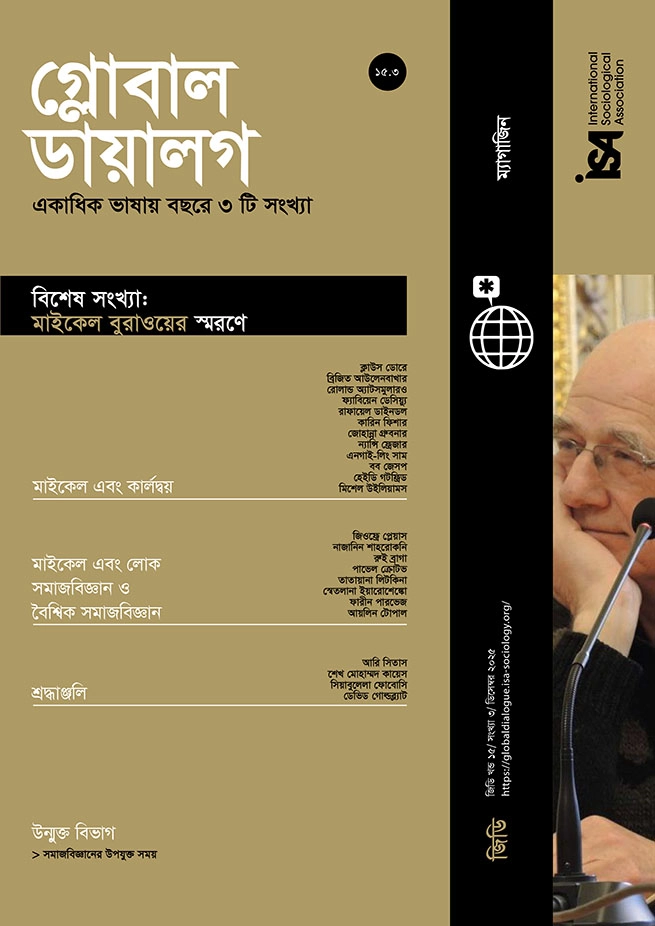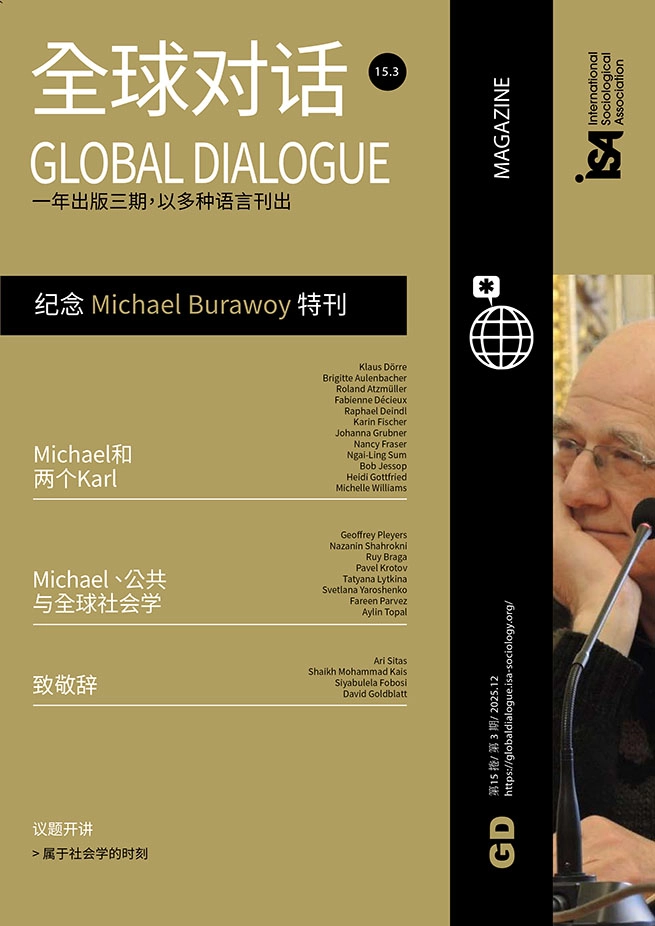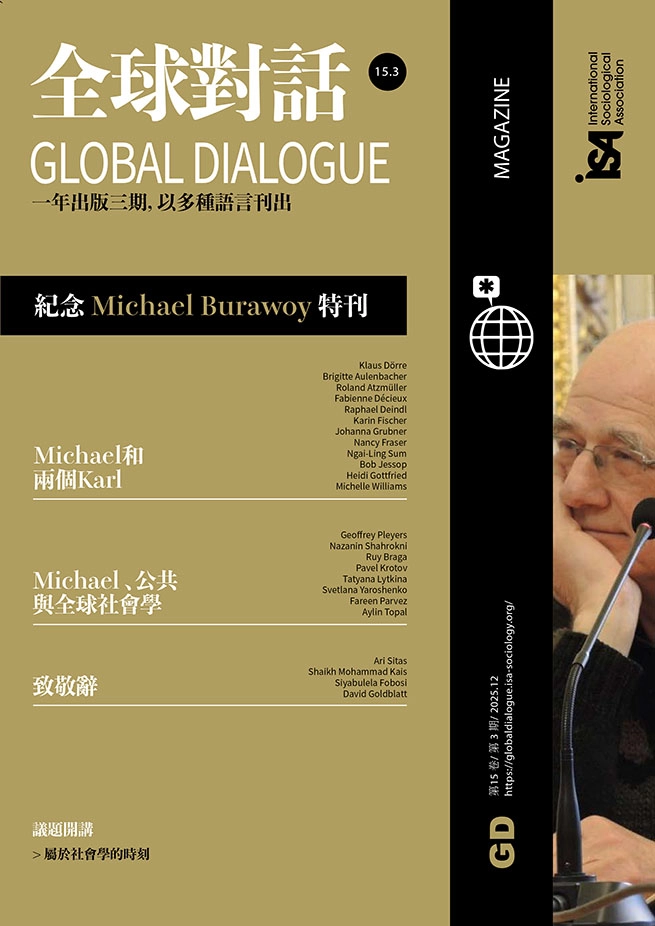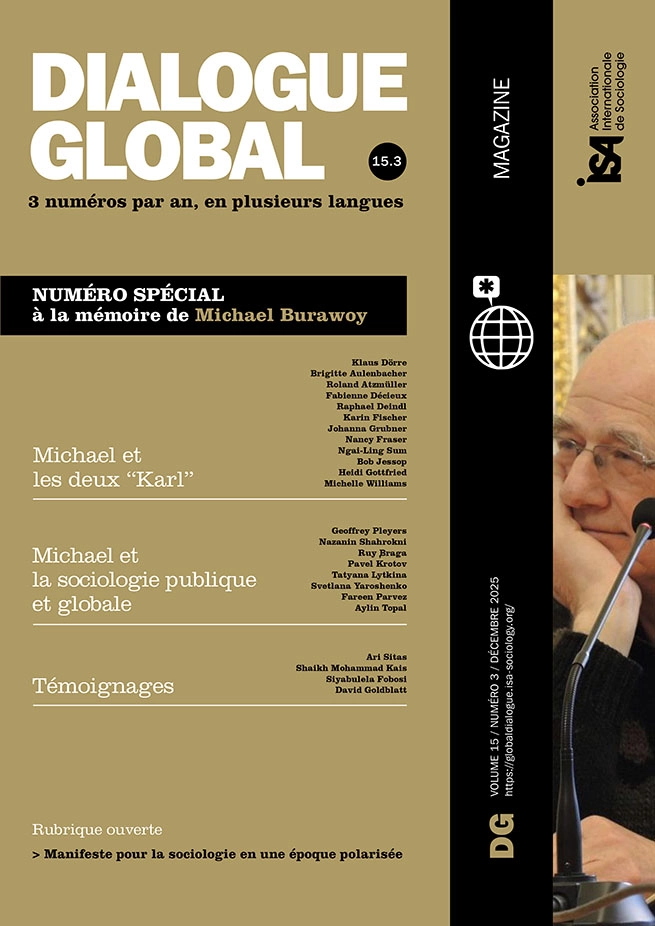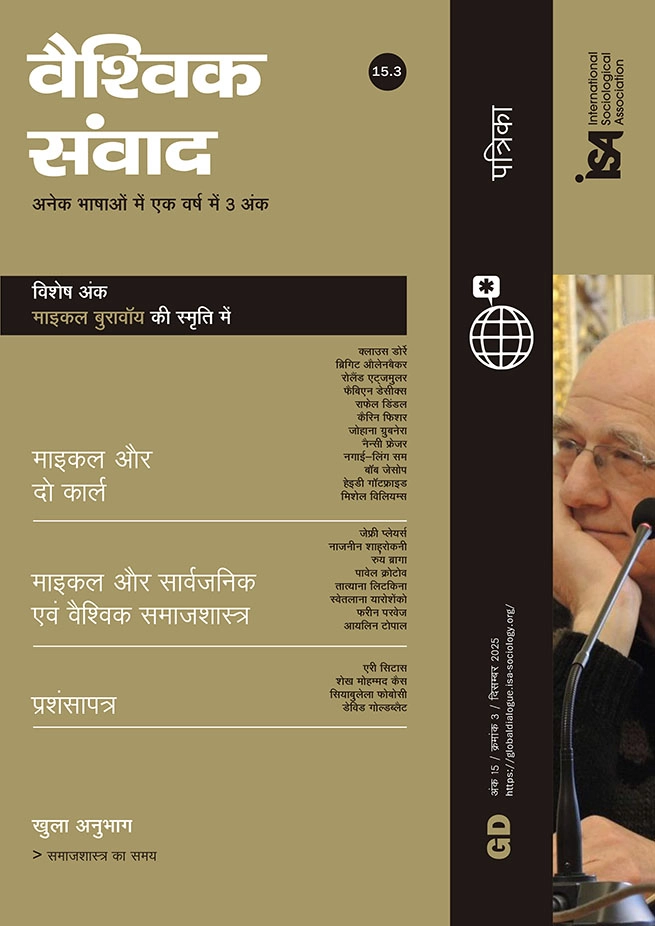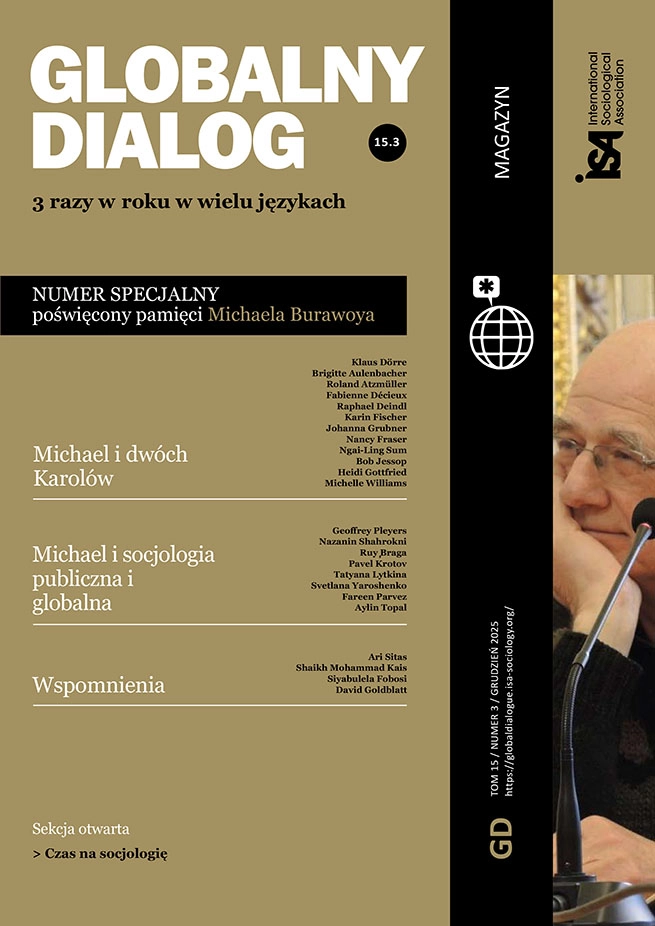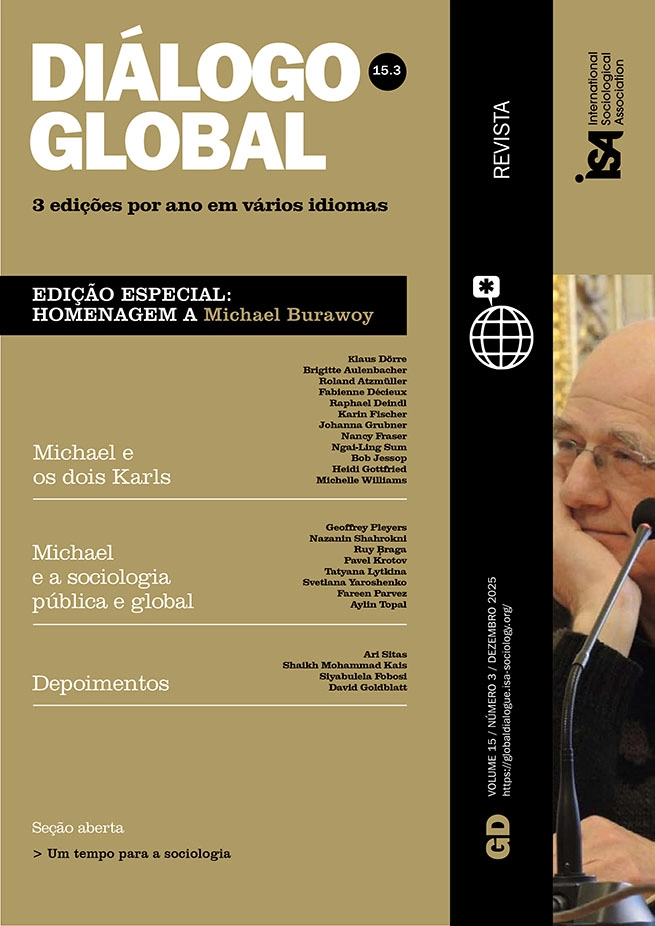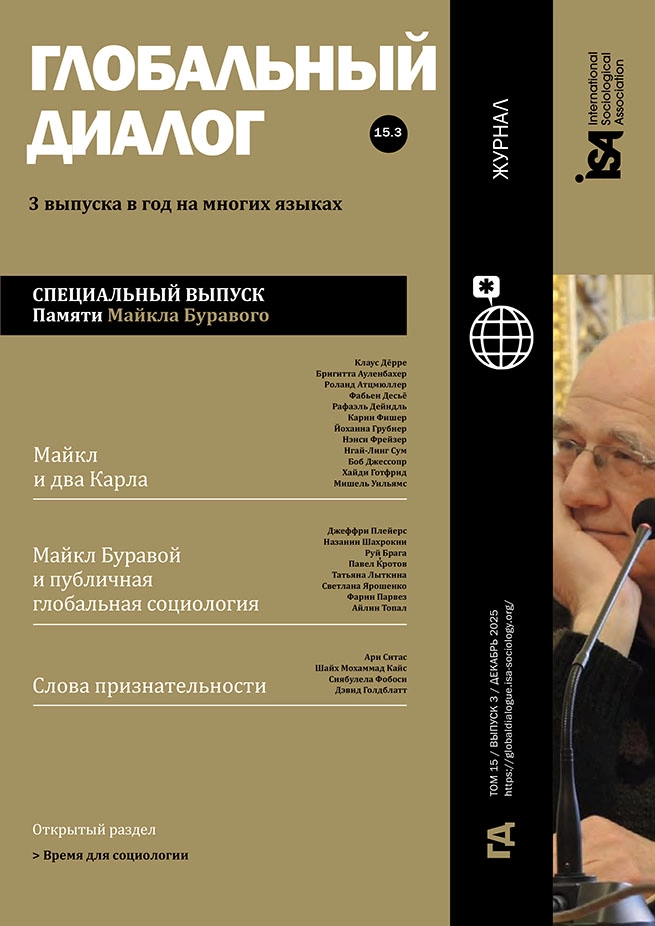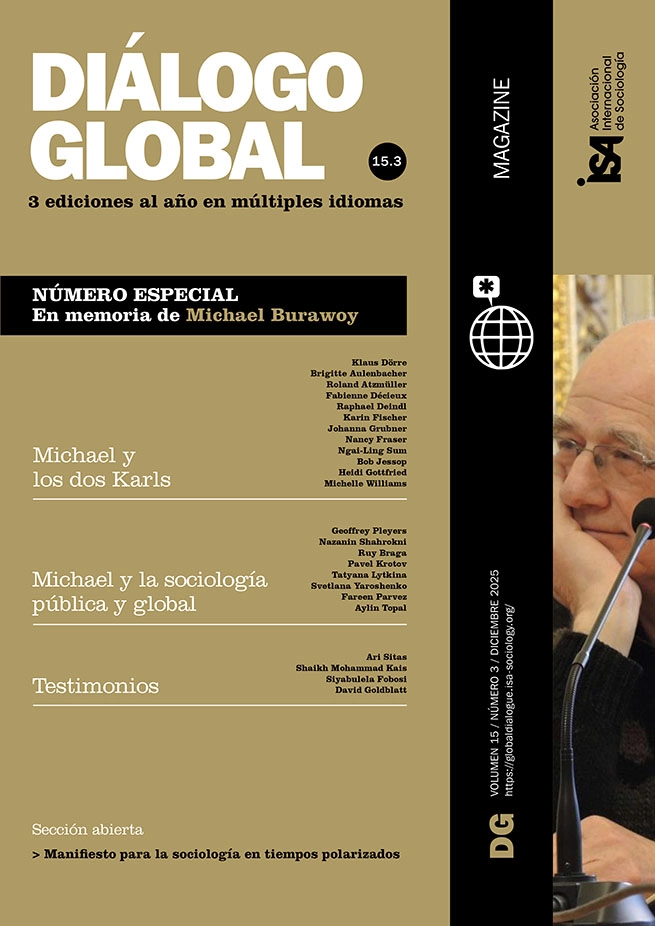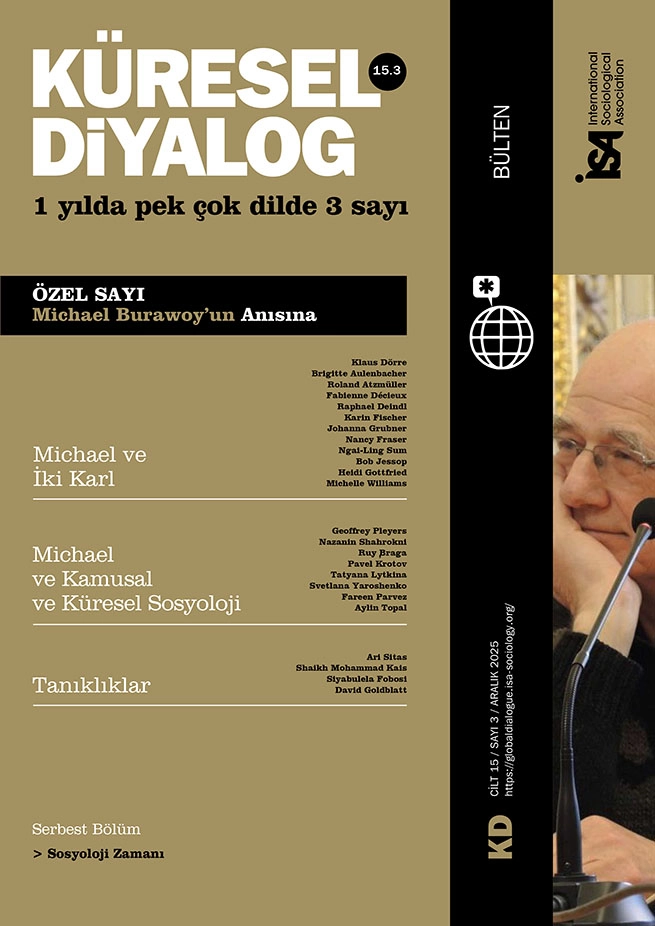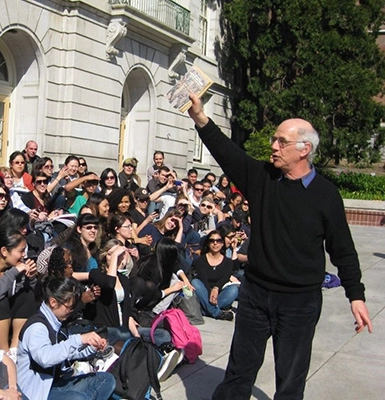Michael Burawoy was my PhD advisor and was in my life from 2001. I had the privilege of sharing a rich and wonderful dialogue with him for 24 years. My last email to Michael was just a few hours before I learned of his passing, sharing with him my thoughts for a Palestine teach-in that he generously encouraged. Just minutes after teaching his brilliant 2000 essay, “Marxism after Communism,” I received a voicemail and then read the devastating email.
It’s both painful and heartwarming to help honor his legacy. Reaching across national divides was so important to Michael from the start, and then through his work with the International Sociological Association and his extensive travels to meet sociologists wherever they were across the world, over the last fifteen years.
Michael had about 80 graduate students whose dissertations he chaired. Many came to him because of their interests in labor or the former Soviet Union and post-communist transition. And many others because of his support for ethnography, global comparative work, or his Marxist approach to sociology and the world. I’m in the last category, which also means I didn’t, at the time, engage with a lot of Michael’s empirical work. But I’m now in the process of discovering it and devouring as much of it as I can. Every time I go back to Michael’s writings, I’m struck by the poetry that’s embedded in how he wrote. The passion that he communicated in real life is very much alive on the page.
The morally responsible ethnographer, sociologist, and Marxist always
As an ethnographer, Michael worked as a machine operator, as a radial drill operator (I’m not even sure what that is!), in a rubber factory, in a champagne factory and in a furniture factory up in the Russian Arctic (which, I joked with him, I wanted to visit). Michael’s early work was about race and class in the copper mines of Zambia. He wrote about the bases of how workers consent to their own exploitation in the American factory, production processes, and the different state interventions and ideological regimes that sustain them. He also addressed actually existing socialism in Hungary and the Soviet transition to capitalism. He had a sustained engagement with Polanyi and the changing nature of countermovements; and an elaborate and years-long engagement with Bourdieu and more recently the sociology of Du Bois and the larger project of decolonizing the canon. He wrote a good deal on ethnography and my favorite book, The Extended Case Method, and of course on reconstructing Marxism. Michael also wrote critiques of the neoliberalization of the university, racial capitalism in South Africa, and finally, among his last projects was his commitment to Palestine; understanding it as a case of settler colonialism, drawing out a comparative analysis with apartheid South Africa, and above all galvanizing and reminding American sociologists of our moral responsibility to speak out to reduce the suffering of Palestinians.
Michael’s work as poetry
I want to share just a few short favorite passages of the poetry in his writing:
“What is positive science? For Auguste Comte, sociology was to replace metaphysics and uncover empirical laws of society. It was the last discipline to enter the kingdom of science, but once admitted it would rule over the unruly, producing order in progress out of chaos. Thus, positivism is at once science and ideology.” (The Extended Case Method, p. 31)
“In the view of reflexive science, intervention is not only an unavoidable part of social research, but a virtue to be exploited. It is by mutual reaction that we discover the properties of the social order. Interventions create perturbations that are not noise to be expurgated, but music to be appreciated, transmitting the hidden secrets of the participants’ world.” (The Extended Case Method, p. 40)
“Is there not something special that warrants our support for the Palestinian cause? […] Perhaps, the ongoing massacre of Palestinians is the most egregious, the most barbaric atrocity of all. It takes place live on our screens; it is in our face; it is inescapable. The unconditional support of Western powers on the side of Israel gives it world historical significance. For a sociologist it is not enough to declare whose side you are on and then move on; as sociologists we embed our political commitments within a theoretical framework. In a period of ‘postcoloniality’ the systematic and transparent repression of Palestinians by the Israeli state makes it unique, compelling us to re-examine our own past, giving new salience to ‘settler colonialism,’ as the debris of decaying Empires.”
These were only three out of countless passages that are just as beautiful.
Personal influence and the public sociology agenda
I’ll now share a bit about Michael’s influence on me and my work. And then I’ll say a few things about public sociology.
When Michael retired in 2023, I wrote some reflections, as did his other students. I’m sharing a small piece of that here. I started graduate school in September 2001. Two weeks later, Congress voted to invade Afghanistan, and the world would never be the same. I remember Michael’s Soc 101 lectures in those early weeks, where he boldly critiqued the impending war and brilliantly got a lecture hall full of students to think critically about 9/11 and its aftermath (at a moment when American nationalism was at an all-time high). I knew then I was at home.
Within a couple years, Michael was carving out the public sociology agenda, and the excitement and energy around this was palpable and shaped my remaining years. As Michael wrote in “For Public Sociology” (2005): “Many of the 50% to 70% of graduate students who survive to receive their PhD, sustain their original commitment by doing public sociology on the side – often hidden from their supervisor.’ Today, while I don’t have a supervisor per se, it is indeed public sociology on the side that has sustained me.
Michael’s influence today on my thinking is subtle but deep and unshakeable. My work on religion and madness in Morocco reflects what I learned through him about Fanon’s psychoanalytic work in Algeria and the sociological roots of trauma. My research on household debt in India takes me back to my first love of Marxism, that he nurtured. Indeed, Michael’s Marxism was my sanctuary.
I gravitated to Michael not only because of his intellectual and personal charisma but because I saw alienation and class in everything I was studying, whether it was how people thought about the pornography industry (my MA thesis that Michael served on) or types of political mobilization among Muslim minorities (my dissertation he supervised, and eventual book).
The teacher of analytical thinking whose point was always to change the world
Michael encouraged me in my ethnography to avoid the hegemonic sites of power and global cosmopolitanism and to focus instead on more marginal cities in my field sites of France and India. So I ended up studying Lyon in southeastern France and Hyderabad, in South India. And I’m so thankful for this, to have lived and learned in the margins. Through Michael, I learned to think analytically, and when I’m stuck in my ability to form an argument, I go back to the 2x2 table he was so fond of and find the clarity and sharpness that are otherwise so elusive.
Michael of course shaped my understanding of ethnography. Grappling with profound ethical questions and power relations in the field, studying subaltern Muslim communities, I knew Michael was with me in spirit. And I quoted him in my methodological appendix in my book.
Again from Extended Case Method: “On whomever’s side we are, managers or workers, white or black, men or women, we are automatically implicated in a relation of domination. As observers, no matter how we like to deceive ourselves, we are on ‘our own side,’ … (Goldner 1968). Our mission may be noble – broadening social movements, promoting social justice, challenging the horizons of everyday life – but there is no escaping the elementary divergence between intellectuals, no matter how organic, and the interests of their declared constituency.”
Michael lived and breathed Thesis 11: “Philosophers have hitherto only interpreted the world in various ways; the point is to change it.”
I think his students would all agree he believed foremost in changing the world and in revolution more than in theory for theory’s sake or knowledge for the sake of knowledge. This drives me in all that I do; indeed, it haunts me. But it has a funny place in American sociology. I remember years ago I got a very negative evaluation from a student in my class. They wrote, “Professor Parvez’s class is useless – unless you want to be a communist revolutionary.” I wasn’t sure whether to be insulted or to wear that as a badge of honor. I’d like to think Michael would have laughed and been proud. As Zach Levenson wrote in a tribute essay, “Michael couldn’t stand empiricism, but he was equally repulsed by theoreticism. The task of sociological Marxism, he thought, was to carefully navigate between these twin pitfalls.”
Another exemplary thing in Michael, that I hope has influenced me, was his willingness to change as the world changed. Again, this was true to his understanding of Marxism. Although he taught his social theory class in a very particular way for decades, he came to embrace Du Bois and embarked on a whole new conversation and began changing his theory course. Before Du Bois, he had had a long encounter with Bourdieu. (I remember him enrolling as a student in Loic Wacquant’s graduate seminar on Bourdieu and grumbling about how much homework he had!) I was lucky to have been part of that cohort of students that debated and argued about the limits and potentials of a Bourdiesian perspective. Michael had such a deep need to understand and clarify his own theoretical lenses, and it was thrilling to share a small part of that dynamism.
Optimism of the will and moving forward
Michael had written in 2011: “Antonio Gramsci is famously associated with the phrase, ‘pessimism of the intellect, optimism of the will’. Pessimism of the intellect refers to the structural determination of social processes, setting limits on the possible. Politics, on the other hand, requires optimism, concerned as it is with collective will formation, dissolving limits and striving for the impossible. …Optimism of the will calls for pessimism of the intellect, and vice versa. They are Siamese twins.”
Though I had some indications, I don’t know if Michael believed that the crises in the US were becoming deeper and deeper and the contradictions would eventually ripen to the point of moving toward socialism. But Michael was always excited and supportive of contemporary social movements, from Occupy Wall Street to the movement for justice in Palestine, something he had talked about occasionally over many years.
But he would often remind us that our number one public was our undergraduates. And to the extent that we are in a Gramscian war of position, the university is inside the trenches. Raising the morale of our students, helping them see that something is rotten to the core of our capitalist system, that yes, they can and must change the world, for those of us in education, this is perhaps our most important task.
In his characteristic humility, Michael always used to say that public sociology was mainstream sociology in much of the Global South, from South Africa to India; that he wasn’t making a particularly new intervention when it came to advocating for the idea that our work as sociologists must be accountable to or engaged with the public. I think he was learning from activists and sociologists in the Global South.
Organic public sociology: process or ethics
He wrote, again in 2011: “Public sociology cannot be the name for bad sociology, it cannot be vanguardist or populist but must aim for a dialogue [with labor] on the basis of what we know as sociologists” (2011: 75).
We must keep having these exchanges across the Global North and Global South, continuing to dismantle this binary towards a real solidarity that Michael so embodied in his practice. We must keep sharing knowledge in a real multidirectional way, to share our insights with communities on the ground and with social movements. We won’t always agree, and for those of us who are ethnographers, our arguments may not always be what communities want to hear; but you dialogue and debate, and in that process, we move forward – and this is what constitutes a tradition.
Based on a 2021 essay he wrote, my sense is that it was increasingly important to Michael that public sociology go beyond traditional means of writing for the media, op-eds and radio, but to engage with activists and communities in an “organic public sociology.” For me personally, this is the direction I’ve been moving in. There’s no blueprint for how to do it, and I’m very much learning by doing. I try to find that sweet meeting spot of sociological analysis and theory, and the lived realities and face-to-face communication with those most impacted by the violence and suffering we want to fight; whether alongside refugee communities, migrant workers, or working-class activists protesting in the streets.
While Michael didn’t get into the weeds of navigating those power relations or how exactly to have those dialogues, especially across the class divide, I think we can still learn from his example. Specifically, I wonder if organic public sociology could be a process or an ethics.
Michael would never have articulated it this way, but based on his example, I think perhaps organic public sociology has to do with a commitment to science but also a commitment to engaging people with the heart, and a type of moral conviction and character.
Michael’s legacy: humor, energy, optimism and ethics to support us on shaking ground
What are some parts of Michael Burawoy’s character that impacted so many hundreds of us around the world, perhaps thousands? He had an openness, a belief in the intuitions of others, a kindness and humility, and a true democratic spirit: the belief that you could learn from anyone, an ethics of treating everyone with respect, from his students to the custodial staff in the building. Don’t get me wrong, he could be impatient, and he had no tolerance of intellectual laziness or grandstanding. But Michael had so many publics, across the Global North and the Global South, and what gave integrity to his public sociology was this ethic, his way of being.
I mourn the fact that I won’t be able to have these conversations with Michael about public sociology and organizing in dark times. But in my stages of grief, I think about taking all the things I loved, his humor and energy and optimism and ethics, and making them my own. I think that’s the journey now for all of us who were in his orbit and who were able to learn from him and take in his blessings. He wrote in The Extended Case Method, “when the ground beneath our feet is always shaking, we need a crutch.” For me, Michael Burawoy’s corpus of writings (which I consider his poetry) and his ethics (which I had the privilege of witnessing) will be that crutch.
This piece is based on comments delivered on March 1, 2025, at a webinar in honor of Michael Burawoy by the Social Theory Network, based in Bangladesh. The webinar was titled “Public Sociology & the Global South.” A first version was published in the Berkeley Journal of Sociology.
Fareen Parvez, University of Massachusetts Amherst, USA <parvez@soc.umass.edu>
